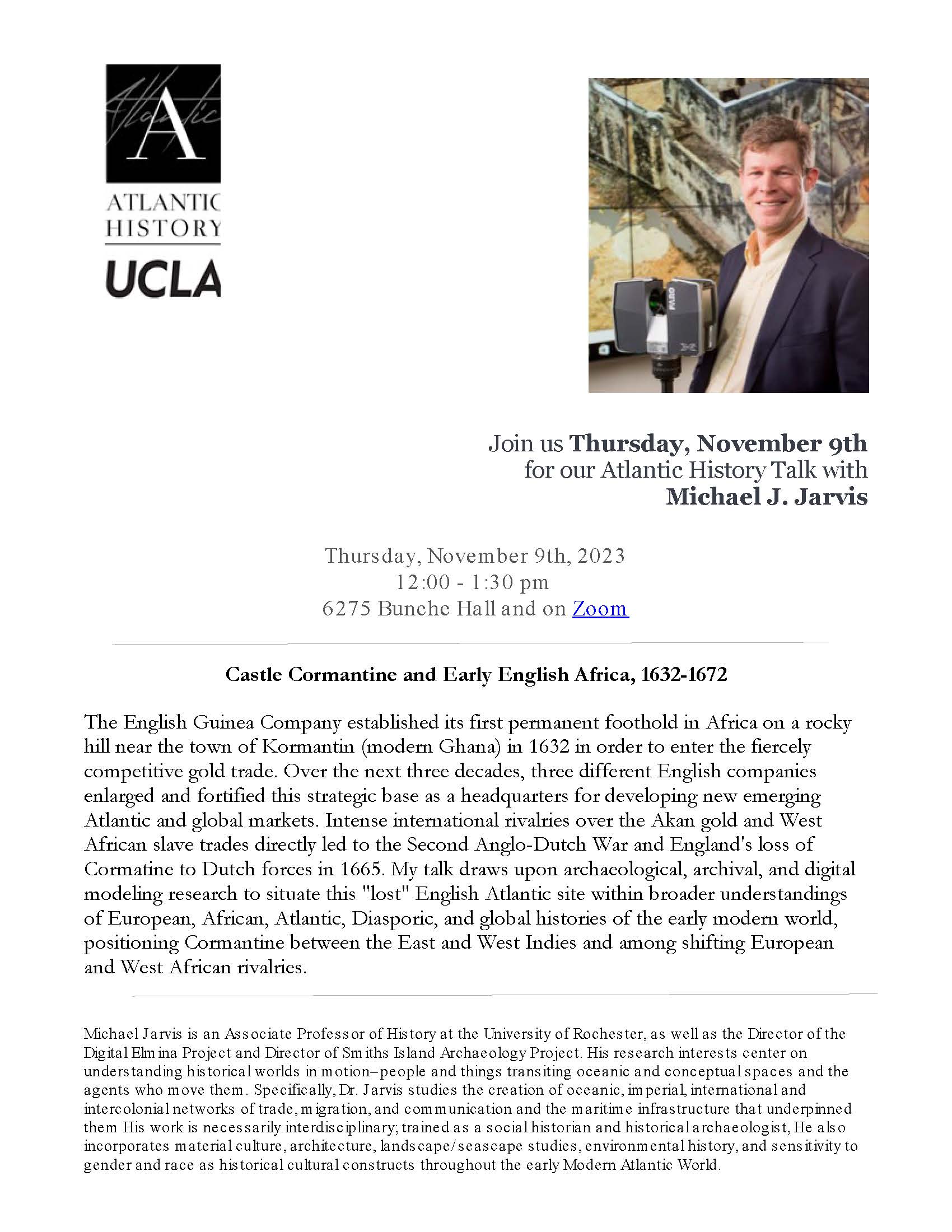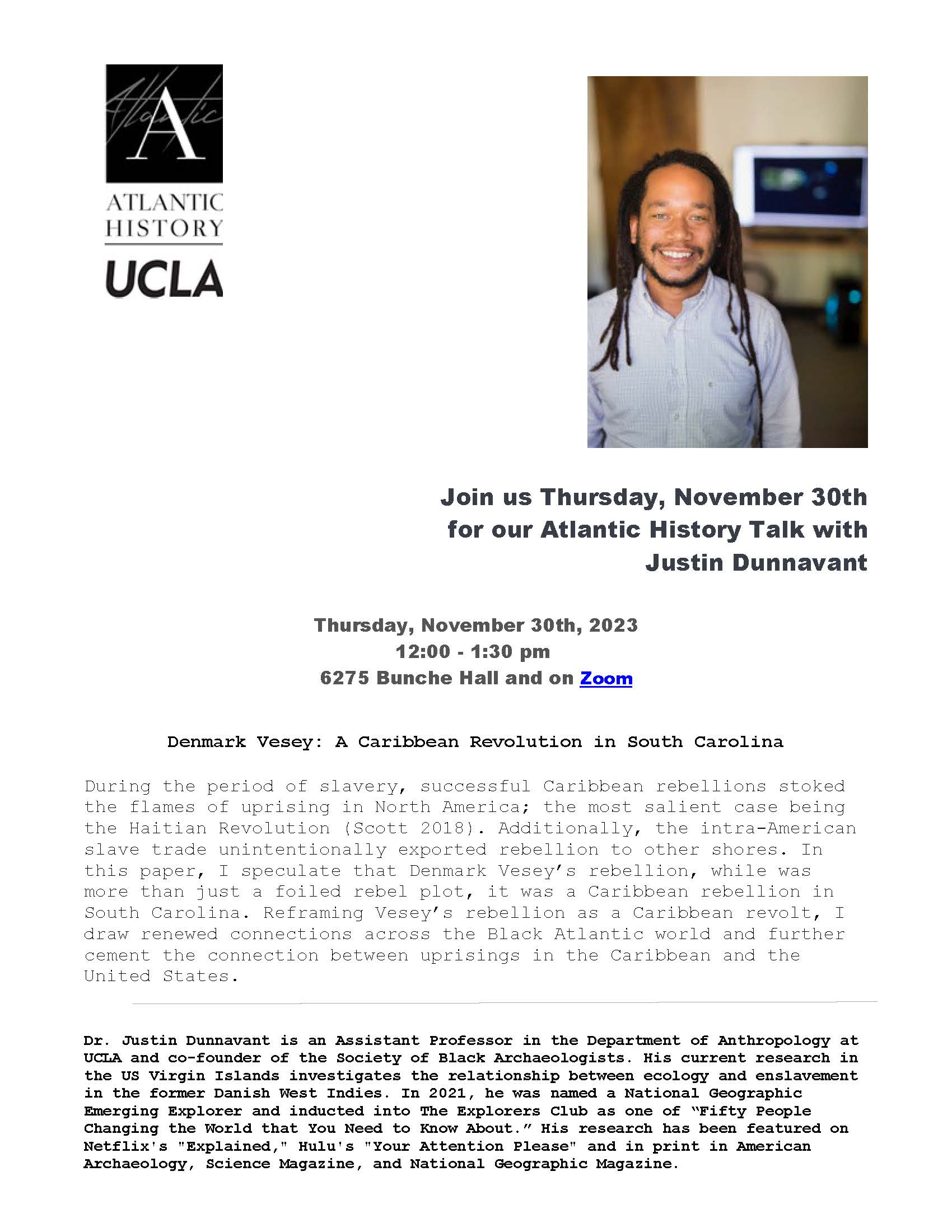Isabela Dornelas, “From Pelvic to Abdominal: The Development of Cesarean Section in Brazil, Mid-XIX Century.”
5288 Bunche HallZoom link here
Zoom link here

----- RSVP: In-Person and Virtual -----

The Atlantic History Colloquium generates innovative scholarship on the relations linking Africa, Europe and the Americas by investigating the expansion of markets during the slave trade; the production of literary texts and forms of historical memory; the politics of religious dissent and conversion; the growth of colonial science and cartography; Native American ethnogenesis; the rise […]
A symposium in honor of Professor R. Bin Wong on the occasion of his retirement from the UCLA history department. Distinguished scholars, including former students of Professor Wong, will lead conversations about major aspects of his far-ranging contributions to scholarship on Chinese history, comparative history, and social theory. Schedule: 9:00-9:15 am Welcome 9:15-10:05: first session […]
This event will be held in person and via Zoom.

The Atlantic History Colloquium generates innovative scholarship on the relations linking Africa, Europe and the Americas by investigating the expansion of markets during the slave trade; the production of literary texts and forms of historical memory; the politics of religious dissent and conversion; the growth of colonial science and cartography; Native American ethnogenesis; the rise […]
Celebration of the publication of Surgery and Salvation (UNC Press Nov 2023) by Elizabeth O’Brien (UCLA History Department). Co-Sponsored by the History of Gender and Sexuality Working Group. Details to follow. This event will be held in-person and via Zoom.